What will students learn?
KS5
- A Level Chemistry
- A Level Biology
- Cambridge Technical Diploma in Applied Science
A level Biology, Chemistry and Applied Science starts with an introduction of topics they will be learning based on what they learnt in their GSCE curriculum. Biology starts with revisiting cell structure and function. Students reinforce substantive knowledge, structure and function of cells, with disciplinary knowledge by using microscopes to recognise different types of cells, creating scientific drawings, and calculating size of organelles by calibrating graticules. Teaching cellular structure and function first gives a strong foundation for students before moving onto key concepts like cellular respiration, photosynthesis, immunity, transport, biodiversity and evolution.
A level Chemistry starts with revisiting the structure of the atom and electron configurations which are fundamental to understand why and how chemical reactions happen and what type of bonds form between atoms.
In terms of our technical offer, we have chosen to deliver the Cambridge Technical Diploma in Applied Science. This course allows much of the learning to be linked to real world problems in industry. Students are issued assignment briefs linked to such scenarios wherever possible. In the unit Human Nutrition students explore the components of a healthy diet in the context of certain disorders, diet restrictions and lifestyle factors. They look at the different governmental organisations that provide legislation around food packaging and licensing laws. Students calculate energy in foods by conducting practical experiments on different foods.
Extra-curricular science learning is always connected to real-world applications of science.
- STEM Academy across Mulberry Schools trust (sponsored by Mercedes Formula 1)
- Signposting to relevant experiences, lectures and summer programmes
- Extended project qualification
- Science conferences
- Access programmes such as The Sutton Trust
- UCL medical programme
- KCL outreach programmes
- Nuffield research placements
- Use of the hospital ward to practice etiquette, skills and interpersonal skills
How do we assess students and help them to improve?
All students sit baseline assessments to check prior knowledge and supports the flexible approach we take when teaching specific concepts and how long we spend teaching them. Time is allocated for students to embed what they have learned in long term memory through extensive practice before moving onto new content. Through regular assessments we move forward according to how secure students’ knowledge is.
Our science curriculum takes into consideration of shared language which may have different interpretations in Math and Sciences. This avoids misconceptions e.g. the line of best fit. Many A level Science students combine their studies with other A levels that teach statistical calculations such as A level Maths and Psychology. Teachers can quickly ascertain which students may need an earlier starting point when learning statistical calculations and analysis. Knowledge is built on from students’ prior knowledge so pupils’ misconceptions are less likely. These are then explicitly addressed within lessons.
Our assessment identifies the strengths and gaps of a student’s own learning. We use it to identify any misconceptions and decide what needs to be revisited, retaught or reinforced. Assessments include the checking of substantive knowledge and disciplinary knowledge. In all assessments students are tested on new content, previous content, mathematical skills, practical investigations and application. Through regular assessments we move forward according to how secure students’ knowledge is. This cycle of assessment and feedback work students towards being confident expert learners.
In the department we assess using baseline assessments, practice exam questions, end of topic cumulative assessments, tracked practical assessments (for A level) and mock assessments. Students are provided with live feedback in lessons, after assessments and written feedback for their coursework.
How will we ensure that the needs of SEND learners and high achieving learners are met?
In our science curriculum all students regardless of SEN/PP are expected to meet all lesson outcomes and be successful on their courses. Staff adapt their teaching practice, where needed to support students in achieving ambitious goals. All staff read and apply strategies in students IEPs to support quality first teaching. Teachers undertake regular data analysis to check progress of students which is then fed into lesson planning, creating resources, scaffolding and intervention. We provide a fully inclusive, engaging learning environment where all students are suitably supported and challenged. Checking for understanding occurs seamlessly throughout every learning experience and responses inform teachers, allowing them to respond effectively to the needs of the class and individuals through adapting pace and challenge, addressing gaps and misconceptions.










